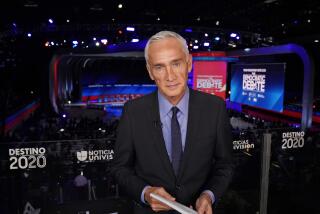Ramos Takes Philippine Helm, Warns of Hardship : Inauguration: Former defense chief says ‘remedies close to surgery’ are needed to save a stricken economy.
- Share via
MANILA — Warning that “things could get worse before they get better,” former Defense Secretary Fidel V. Ramos was sworn in Tuesday as the eighth post-independence president of the Philippines, a country that has slid in three decades from one of Asia’s richest countries to one of its poorest.
Outgoing President Corazon Aquino smiled broadly as her chosen successor took the oath of office on schedule, marking the country’s first peaceful transfer of power since 1965. She appeared startled, however, when Ramos then kissed her on both cheeks instead of shaking her hand.
The 64-year-old retired general urged the politically fractious country to bury its differences in order to catch up with its more prosperous neighbors. He warned that “remedies close to surgery” are needed to jump-start a stagnant economy, end political instability and help those Filipinos who live in appalling poverty and make up more than half of the country’s 64 million people.
“Let us begin by telling ourselves the truth,” Ramos said in a strongly worded 30-minute inaugural address. “Our nation is in trouble. And there are no easy answers, no quick fixes for our basic ills. Once we were the school of Southeast Asia. Today, our neighbors have one by one passed us by.
“The immediate future will be difficult,” he warned. “In some areas, things could get worse before they get better. Sacrifices will be asked of every sector of society.”
Heavy security ringed the Luneta Park grandstand after pre-dawn dynamite bombings damaged four Manila-area banks and a railway station. No group claimed responsibility, and no injuries were reported, but the attacks underscored the challenge Ramos faces trying to unite a country still battling rightist rebels, leftist guerrillas and Muslim insurgents.
Many of the formally attired diplomats, dignitaries and other guests were drenched by a steady morning rain that soon left a steamy tropical heat. Among the crowd were foreign ministers from neighboring Southeast Asian countries and Australia. Japan, the biggest bilateral aid donor, sent former Prime Minister Toshiki Kaifu, while the United States was represented by Elaine Chao, director of the Peace Corps.
Relations with Washington have been rocky since the Philippine Senate voted last September to reject a lease extension for the Subic Bay Naval Base, ending a nearly century-old military presence in America’s only former colony. The Bush Administration has since slashed military and economic aid by 60%, and Congress plans further cuts next year, although the Philippines is still the largest recipient of U.S. aid in Asia.
Ramos has promised a thorough review of U.S.-Philippine relations during his first 100 days in office, including a potential commercial-access agreement for military facilities at Subic Bay. His speech Tuesday offered no specifics but promised to strengthen ties with “old friends and trading partners.”
Ramos attended the U.S. Military Academy at West Point and later earned a master’s degree in civil engineering from the University of Illinois. He served more than 40 years in the military, including tours in Korea and Vietnam, and is the first career soldier and the first Protestant to be elected president of Asia’s only Roman Catholic country.
The new president, the son of a former foreign minister, Narciso Ramos, is known as a cautious, private man who broods over decisions and is often slow to act. Thin and wiry, he is an inveterate jogger and sky diver. He rarely does anything without an unlit Philippine cigar in his mouth; he stopped smoking them in 1987.
More to Read
Sign up for Essential California
The most important California stories and recommendations in your inbox every morning.
You may occasionally receive promotional content from the Los Angeles Times.














